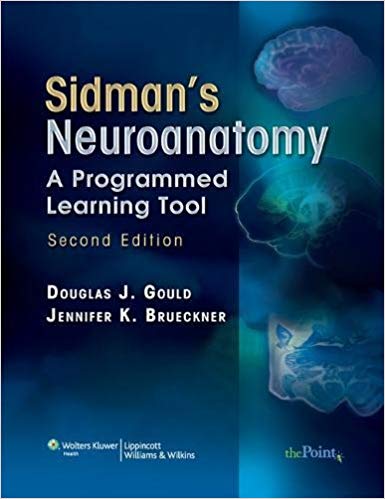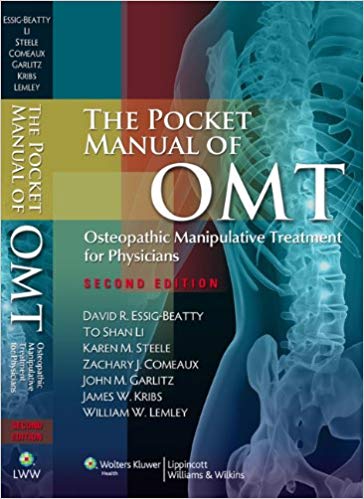
Sunday, September 27, 2020
Business Statistics 10th Global Edition by David Groebner, ISBN-13: 978-1292220383 - EbooksCheaper.com
Business Statistics 10th Global Edition by David Groebner, ISBN-13: 978-1292220383 - EbooksCheaper.com: Author(s): David Groebner Format: PDF Size: 40 MB 866 pages ISBN-10: 1292220384 ISBN-13: 978-1292220383 Publisher: Pearson; 10th Edition (October 20, 2018) Language: English


Saturday, September 26, 2020
Friday, September 25, 2020
Leadership Advocacy For Early Childhood Education - ebookschoice.com

Early childhood
development and education has been a major topic of discussion and planning at all
levels—federal, state, and local communities — not only because of the
widespread recognition of the research base on the importance of early
development to long-term schooling
success, but as a critical national investment strategy for the future of
the nation in the 21st Century global economy. In recent years, early childhood
interventions from birth to the early grades have received much attention,
including billions in federal and state spending in early childhood care and education programs. There have been
many advances in research and the knowledge base on what contributes to healthy
development and learning success for all of the increasingly diverse children
growing up in this country. This progress falls far short of a vision and
standards of an educated citizenry in the United States. For example, the
United States lags far behind other leading nations in providing universal
child care and preschool for all children, regardless of family income, social
status, race, or ethnicity. While there is a significant increase in the number
of children attending day care and preschool
programs, access to this care is very inequitably distributed. In addition,
the research base on the quality of these program options is sorely lacking.
The complexity of multiple challenges facing families and their children and
the rich resources that can be mobilized in the service of healthy development
and educational success of this
nation's young children are highlighted in the research base and have
significant implications for policy and practice. An interdisciplinary team of
nationally known scholars and practitioner leaders were commissioned to prepare
background papers to provide knowledge syntheses of what is known from research
and practical applications. The authors were asked to address questions that
are frequently raised in public discussions about new and continuing
investments in early childhood programs, including:
development and education has been a major topic of discussion and planning at all
levels—federal, state, and local communities — not only because of the
widespread recognition of the research base on the importance of early
development to long-term schooling
success, but as a critical national investment strategy for the future of
the nation in the 21st Century global economy. In recent years, early childhood
interventions from birth to the early grades have received much attention,
including billions in federal and state spending in early childhood care and education programs. There have been
many advances in research and the knowledge base on what contributes to healthy
development and learning success for all of the increasingly diverse children
growing up in this country. This progress falls far short of a vision and
standards of an educated citizenry in the United States. For example, the
United States lags far behind other leading nations in providing universal
child care and preschool for all children, regardless of family income, social
status, race, or ethnicity. While there is a significant increase in the number
of children attending day care and preschool
programs, access to this care is very inequitably distributed. In addition,
the research base on the quality of these program options is sorely lacking.
The complexity of multiple challenges facing families and their children and
the rich resources that can be mobilized in the service of healthy development
and educational success of this
nation's young children are highlighted in the research base and have
significant implications for policy and practice. An interdisciplinary team of
nationally known scholars and practitioner leaders were commissioned to prepare
background papers to provide knowledge syntheses of what is known from research
and practical applications. The authors were asked to address questions that
are frequently raised in public discussions about new and continuing
investments in early childhood programs, including:
- What is
the current state of knowledge about the impact of early childhood programs on
learning and development of young children? What works? Who benefits most? What
are the limits of our knowledge?
the current state of knowledge about the impact of early childhood programs on
learning and development of young children? What works? Who benefits most? What
are the limits of our knowledge?
- What
contributes to effective implementation and how is a high degree of
implementation sustained? What conditions increase the quality of program
implementation and effectiveness?
contributes to effective implementation and how is a high degree of
implementation sustained? What conditions increase the quality of program
implementation and effectiveness?
- What are
the implications for policy and program development, modification, and
expansion? How can the best or most promising practices be disseminated to
scale up implementation of quality early
childcare and education programs, particularly for children from
educationally and economically disadvantaged circumstances?
the implications for policy and program development, modification, and
expansion? How can the best or most promising practices be disseminated to
scale up implementation of quality early
childcare and education programs, particularly for children from
educationally and economically disadvantaged circumstances?
Recommendations:
- Access to
public-supported daycare and preschool programs should be universal regardless
of family income, social status, or ethnic and racial backgrounds. These
programs should be full-day, full-year programs that do not distinguish between
childcare and education. Universal access to daycare and preschool education
would attract greater numbers of middle and lower socioeconomic status families
to early childhood programs, which would lead to increased diversity and
ultimately to better quality programs.
The current "you get what you pay for" mentality that exists would be
eliminated and all children would begin their education on a level playing
field.
public-supported daycare and preschool programs should be universal regardless
of family income, social status, or ethnic and racial backgrounds. These
programs should be full-day, full-year programs that do not distinguish between
childcare and education. Universal access to daycare and preschool education
would attract greater numbers of middle and lower socioeconomic status families
to early childhood programs, which would lead to increased diversity and
ultimately to better quality programs.
The current "you get what you pay for" mentality that exists would be
eliminated and all children would begin their education on a level playing
field.
- Universal
access to daycare and preschool programs should be seamless, creating a
continuity of learning for children. Curriculum and assessment standards must
be aligned and services should be comprehensive and aimed at intellectual,
physical, and social development of children and their readiness to achieve
learning success in elementary schools.
access to daycare and preschool programs should be seamless, creating a
continuity of learning for children. Curriculum and assessment standards must
be aligned and services should be comprehensive and aimed at intellectual,
physical, and social development of children and their readiness to achieve
learning success in elementary schools.
-
High-quality, well-trained, well compensated educators and staff are key to student achievement at all levels of
education. Professional development for early childhood educators and staff
must be improved and focus on early childhood development, curriculum design,
best practices and pedagogy, and parental involvement.
High-quality, well-trained, well compensated educators and staff are key to student achievement at all levels of
education. Professional development for early childhood educators and staff
must be improved and focus on early childhood development, curriculum design,
best practices and pedagogy, and parental involvement.
- A balance
of focus in preservice and inservice professional development programs must be
maintained. The issue of maintaining a substantive balance of pedagogy versus
subject matter mastery in teacher preparation and inservice professional development programs has been
a persistent debate among educators. Teacher education programs often emphasize
subject matter knowledge and offer little training in developing a great
understanding of the learning of young children. It was generally agreed that teaching,
teacher development, and curriculum delivery needs to focus on what has the
greatest impact on healthy development and life-long learning of each child.
Professional development should not only strengthen staff and teachers'
knowledge of subject matter and curricular issues, but should emphasize methods
for recognizing and addressing children's developmental and learning needs.
of focus in preservice and inservice professional development programs must be
maintained. The issue of maintaining a substantive balance of pedagogy versus
subject matter mastery in teacher preparation and inservice professional development programs has been
a persistent debate among educators. Teacher education programs often emphasize
subject matter knowledge and offer little training in developing a great
understanding of the learning of young children. It was generally agreed that teaching,
teacher development, and curriculum delivery needs to focus on what has the
greatest impact on healthy development and life-long learning of each child.
Professional development should not only strengthen staff and teachers'
knowledge of subject matter and curricular issues, but should emphasize methods
for recognizing and addressing children's developmental and learning needs.
- Parental
involvement is crucial to the success of early childhood programs. Involving
parents at all levels of decision making, including curriculum design and
professional development, increases parents' sense of ownership of these
programs and encourages collaboration between schools and the communities. Most
parents want to be involved in every aspect of their children's education. By
including parents in the early childhood equation, learning that begins in the
classroom is reinforced at home. A critical element of this reinforcement is
the development of a common vocabulary that teachers and parents can use to
discuss a child's progress and methods for improvement.
involvement is crucial to the success of early childhood programs. Involving
parents at all levels of decision making, including curriculum design and
professional development, increases parents' sense of ownership of these
programs and encourages collaboration between schools and the communities. Most
parents want to be involved in every aspect of their children's education. By
including parents in the early childhood equation, learning that begins in the
classroom is reinforced at home. A critical element of this reinforcement is
the development of a common vocabulary that teachers and parents can use to
discuss a child's progress and methods for improvement.
- Parents
should receive information on relevant research on effective practices in
readable and useful forms. Parents should not only be informed, but also should
be involved in providing input and making programming decisions about the education of their children.
should receive information on relevant research on effective practices in
readable and useful forms. Parents should not only be informed, but also should
be involved in providing input and making programming decisions about the education of their children.
In addition
to the broad-based issues of universal daycare, professional development, and
parental involvement, we have the following specific recommendations for moving
forward with an advocacy action agenda for universal quality childcare and
preschool education.
to the broad-based issues of universal daycare, professional development, and
parental involvement, we have the following specific recommendations for moving
forward with an advocacy action agenda for universal quality childcare and
preschool education.
- Convince
policymakers that: (a) early childhood programs can be cost effective; (b) the
extent and quality of programs are crucial to achieving success; and (c)
programs can be successful at a relatively small amount of cost if integrated
into existing structures.
policymakers that: (a) early childhood programs can be cost effective; (b) the
extent and quality of programs are crucial to achieving success; and (c)
programs can be successful at a relatively small amount of cost if integrated
into existing structures.
- Initiate
discussions between early childhood education advocates and members of the National Parent Teacher Association. Form
coalitions with other advocacy groups to create better political climates for
children and their families.
discussions between early childhood education advocates and members of the National Parent Teacher Association. Form
coalitions with other advocacy groups to create better political climates for
children and their families.
- Identify
champions of the childcare and early childhood education movement who are
influential. Promote leadership advocacy for early childhood education.
champions of the childcare and early childhood education movement who are
influential. Promote leadership advocacy for early childhood education.
- Focus on
what sells. Advocates need to get the media on the side of quality childcare
and early childhood education. Inform the public about relevant research on
what works in providing quality childcare and preschool education.
what sells. Advocates need to get the media on the side of quality childcare
and early childhood education. Inform the public about relevant research on
what works in providing quality childcare and preschool education.
- Use new
technologies and mass communication avenues to forge a national dialogue on the
mandate for quality childcare and preschool education for all, and to foster
increased parent–school connections.
technologies and mass communication avenues to forge a national dialogue on the
mandate for quality childcare and preschool education for all, and to foster
increased parent–school connections.
- Work to
eradicate the risk factors that continue to challenge and mitigate against
human capital investment and confront racial and social stratification. Examine
the assumptions behind the term "at risk" and devise a new term that
reduces stereotyping.
eradicate the risk factors that continue to challenge and mitigate against
human capital investment and confront racial and social stratification. Examine
the assumptions behind the term "at risk" and devise a new term that
reduces stereotyping.
- Utilize
the research on preventing reading difficulties in young children to minimize
severe academic problems in the primary grades.
the research on preventing reading difficulties in young children to minimize
severe academic problems in the primary grades.
- Improve
articulation alignment of what is taught in colleges and the professional
expertise required for a quality childcare and preschool education force. There
is a critical need to increase collaboration and coordination between higher
education institutions that provide preservice education of childcare and
preschool education professionals and childcare and preschool education
providing agencies.
articulation alignment of what is taught in colleges and the professional
expertise required for a quality childcare and preschool education force. There
is a critical need to increase collaboration and coordination between higher
education institutions that provide preservice education of childcare and
preschool education professionals and childcare and preschool education
providing agencies.
- Attention
needs to be placed on preservice and inservice programs that focus on bringing
research-based knowledge to bear on improving practice.
needs to be placed on preservice and inservice programs that focus on bringing
research-based knowledge to bear on improving practice.
- Parental
involvement should be required coursework for childcare and early childhood education
programs.
involvement should be required coursework for childcare and early childhood education
programs.
-
Researchers, policy makers, and practitioners need to work intensively to
educate their colleagues and the public on viewing the 21st Century as the
"Century of the Child" and creating a national investment strategy
for continuing to be a leading nation in the 21st Century.
Researchers, policy makers, and practitioners need to work intensively to
educate their colleagues and the public on viewing the 21st Century as the
"Century of the Child" and creating a national investment strategy
for continuing to be a leading nation in the 21st Century.
Thursday, September 24, 2020
Tuesday, September 22, 2020
Friday, September 18, 2020
Overcoming Adversities For Children And Youth At Risk Of Educational Failure - EbooksCheaper.com
The primary
goal of the present study is to examine the impact of the changing
macroecological characteristics of cities on school performance, and to draw from the research base and from
innovative developments on what can be done to make a significant difference in
reducing the achievement gap among urban students from minority backgrounds.
Greater numbers of children from increasingly diverse sociocultural and
economic backgrounds have been included in our nation's schools, and the kinds
of educational programs
offered in the classroom have been greatly diversified. These accomplishments, while
significant, have fallen short of the educational
vision of a universal school system that provides all children with equal
access to schooling success. To date, efforts during the past three decades to
desegregate schools have produced very little change to enhance social and
academic integration. Furthermore, the focus on the "setting" of
schooling has become a barrier to the nation's quest to improve schooling for the very students who are the intended
beneficiaries of school desegregation. In particular, the difficulties of life
in the inner city often overshadow the urban community's rich resources for
children and families. By finding ways to magnify the positives in urban life,
we can improve the capacity for
education in the urban community and enhance the schooling success of those
children and youth from economically disadvantaged backgrounds who live in some
of the most adverse inner-city environments. There is increasing evidence that
the achievement gap in this nation's urban schools may be better understood in
terms of the decentralization of cities, the resulting changes in the social
ecology of neighborhoods, and the structure of the urban labor market. The
contention is that the changing makeup of the cities accounts for much of the
failure of urban schools. The United States leads the industrialized world in
numbers of children living in poverty. In addition, residential segregation by
race and social class has also worsened despite efforts to desegregate the
nation's cities following the civil rights legislation of the 1960s.
African-American and other minority students tend to be in schools where
overall achievement is low. And even in schools that have achieved racial
integration, students from language and ethnic minority backgrounds are often
resegregated by a variety of pullout remedial or compensatory education programs. These programs tend to
underestimate what students can do, neglect fundamental content, provide
inferior instruction, delay the introduction of more challenging work, and fail
to provide students with a motivating
context for learning. These circumstances place children at risk of
educational failure and place schools at the center of interconnected social
problems. Countering these trends and reducing the achievement gap requires an
inclusive approach to responding to student diversity and the provision of
powerful instruction that can increase the capacity for achieving the educational success of
all students.
goal of the present study is to examine the impact of the changing
macroecological characteristics of cities on school performance, and to draw from the research base and from
innovative developments on what can be done to make a significant difference in
reducing the achievement gap among urban students from minority backgrounds.
Greater numbers of children from increasingly diverse sociocultural and
economic backgrounds have been included in our nation's schools, and the kinds
of educational programs
offered in the classroom have been greatly diversified. These accomplishments, while
significant, have fallen short of the educational
vision of a universal school system that provides all children with equal
access to schooling success. To date, efforts during the past three decades to
desegregate schools have produced very little change to enhance social and
academic integration. Furthermore, the focus on the "setting" of
schooling has become a barrier to the nation's quest to improve schooling for the very students who are the intended
beneficiaries of school desegregation. In particular, the difficulties of life
in the inner city often overshadow the urban community's rich resources for
children and families. By finding ways to magnify the positives in urban life,
we can improve the capacity for
education in the urban community and enhance the schooling success of those
children and youth from economically disadvantaged backgrounds who live in some
of the most adverse inner-city environments. There is increasing evidence that
the achievement gap in this nation's urban schools may be better understood in
terms of the decentralization of cities, the resulting changes in the social
ecology of neighborhoods, and the structure of the urban labor market. The
contention is that the changing makeup of the cities accounts for much of the
failure of urban schools. The United States leads the industrialized world in
numbers of children living in poverty. In addition, residential segregation by
race and social class has also worsened despite efforts to desegregate the
nation's cities following the civil rights legislation of the 1960s.
African-American and other minority students tend to be in schools where
overall achievement is low. And even in schools that have achieved racial
integration, students from language and ethnic minority backgrounds are often
resegregated by a variety of pullout remedial or compensatory education programs. These programs tend to
underestimate what students can do, neglect fundamental content, provide
inferior instruction, delay the introduction of more challenging work, and fail
to provide students with a motivating
context for learning. These circumstances place children at risk of
educational failure and place schools at the center of interconnected social
problems. Countering these trends and reducing the achievement gap requires an
inclusive approach to responding to student diversity and the provision of
powerful instruction that can increase the capacity for achieving the educational success of
all students.
Much is
known from research and the practical application of innovative practices in
overcoming adversities and strengthening the resources and protective
mechanisms that foster the healthy development and educational resilience of children and youth at risk of educational
failure. If we can find the means of viewing and understanding the
"positives" in the lives of urban children and youth, we can rekindle
the hope for progress by addressing the deep-rooted problem of the achievement
gap. It is difficult if not impossible to achieve significant school improvement without forging
working connections with the multiple forces that influence the development of
children or the social ecology of neighborhoods. Recent discussion among
educators has centered on the search for resilience-promoting strategies or
protective mechanisms that help reduce the burden of adversity and advance
opportunities for learning. Two major guidelines, emerging from the past three
decades of research and innovative development efforts, have received increasing
recognition for potentially reducing the risk factors associated with the urban
life and the achievement gap in urban schools: (a) forging greater school
connections with families and the community; and (b) reducing educational
segregation within schools and implementing responsive and powerful
instructional practices to ensure learning success of every student. There is
growing public demand for a coordinated and inclusive approach to service
delivery, and increasing recognition that the learning problems of children and
families cannot be tackled by schools alone. Broader social policies must be
established to initiate interagency, collaborative programs that link schools
and other service agencies. To this end, a variety of innovative strategies and
programs that are effective in forging coordinated, comprehensive education and
related human services delivery are being created across the country. Although
they vary in their approaches and in the specifics of their program designs,
the problems facing children and families stem from a variety of cultural,
economic, political, and health problems and that their solutions are complex
and require pooled resource from public and private sector agencies. Clearly,
we must find ways to reform current practices to ensure that educational
experience in elementary and secondary schools are appropriate, meaningful, and
the main source for positive development and education. The central improvement
question is not whether to provide an inclusive system of education and related
services delivery, but how to implement such a system in ways that are feasible
and effective in ensuring the schooling success of all children, including and
especially those with special needs. There is a substantial knowledge base that
should be utilized in attempting to improve the current disjointed and
unresponsive approach to serving children and youth with special needs who are
not adequately served under the current system. Public school should be
inclusive and integrated, and separation by race, gender, language background,
and/or ability should be minimized.
known from research and the practical application of innovative practices in
overcoming adversities and strengthening the resources and protective
mechanisms that foster the healthy development and educational resilience of children and youth at risk of educational
failure. If we can find the means of viewing and understanding the
"positives" in the lives of urban children and youth, we can rekindle
the hope for progress by addressing the deep-rooted problem of the achievement
gap. It is difficult if not impossible to achieve significant school improvement without forging
working connections with the multiple forces that influence the development of
children or the social ecology of neighborhoods. Recent discussion among
educators has centered on the search for resilience-promoting strategies or
protective mechanisms that help reduce the burden of adversity and advance
opportunities for learning. Two major guidelines, emerging from the past three
decades of research and innovative development efforts, have received increasing
recognition for potentially reducing the risk factors associated with the urban
life and the achievement gap in urban schools: (a) forging greater school
connections with families and the community; and (b) reducing educational
segregation within schools and implementing responsive and powerful
instructional practices to ensure learning success of every student. There is
growing public demand for a coordinated and inclusive approach to service
delivery, and increasing recognition that the learning problems of children and
families cannot be tackled by schools alone. Broader social policies must be
established to initiate interagency, collaborative programs that link schools
and other service agencies. To this end, a variety of innovative strategies and
programs that are effective in forging coordinated, comprehensive education and
related human services delivery are being created across the country. Although
they vary in their approaches and in the specifics of their program designs,
the problems facing children and families stem from a variety of cultural,
economic, political, and health problems and that their solutions are complex
and require pooled resource from public and private sector agencies. Clearly,
we must find ways to reform current practices to ensure that educational
experience in elementary and secondary schools are appropriate, meaningful, and
the main source for positive development and education. The central improvement
question is not whether to provide an inclusive system of education and related
services delivery, but how to implement such a system in ways that are feasible
and effective in ensuring the schooling success of all children, including and
especially those with special needs. There is a substantial knowledge base that
should be utilized in attempting to improve the current disjointed and
unresponsive approach to serving children and youth with special needs who are
not adequately served under the current system. Public school should be
inclusive and integrated, and separation by race, gender, language background,
and/or ability should be minimized.
Conclusions
To ensure
adequate accountability for achieving
equity in the educational outcomes
of children and youth from ethnic and minority backgrounds who are at risk of
educational failure, federal and state education agencies and local schools
must be linked with other educational, social, and health service-providing
institutions. A common standard of educational outcomes must be upheld for each
student, including those in urban schools with high concentrations of students
from minority backgrounds. A two-part initiative is needed to address the
concern of the achievement gap in urban schools - one that forges greater
school connections with families and the community to foster resilience
development, eliminates educational segregation within schools, and implements
responsive and instructionally powerful practices to ensure the learning success of each student. This
initiative joins demonstrably effective practices and establishes a coordinated
and inclusive educational service
delivery system for children and families. It also calls for broad
authority at federal, state, and local levels to grant waivers of rules and
regulations to schools that wish to provide more integrated forms of
education. A
major next-step task in achieving a better, more systematic approach to service
delivery within and beyond school walls is an aggressive plan to engage the
public in dialogue on the kinds of broad-based school reforms that are needed
to significantly reduce educational segregation and the achievement gap.
adequate accountability for achieving
equity in the educational outcomes
of children and youth from ethnic and minority backgrounds who are at risk of
educational failure, federal and state education agencies and local schools
must be linked with other educational, social, and health service-providing
institutions. A common standard of educational outcomes must be upheld for each
student, including those in urban schools with high concentrations of students
from minority backgrounds. A two-part initiative is needed to address the
concern of the achievement gap in urban schools - one that forges greater
school connections with families and the community to foster resilience
development, eliminates educational segregation within schools, and implements
responsive and instructionally powerful practices to ensure the learning success of each student. This
initiative joins demonstrably effective practices and establishes a coordinated
and inclusive educational service
delivery system for children and families. It also calls for broad
authority at federal, state, and local levels to grant waivers of rules and
regulations to schools that wish to provide more integrated forms of
education. A
major next-step task in achieving a better, more systematic approach to service
delivery within and beyond school walls is an aggressive plan to engage the
public in dialogue on the kinds of broad-based school reforms that are needed
to significantly reduce educational segregation and the achievement gap.
Megan Wilson is a teacher, life strategist,
successful entrepreneur, inspirational keynote speaker and founder of https://Ebookscheaper.com. Megan champions a radical
rethink of our school systems; she calls on educators to teach both intuition
and logic to cultivate creativity and create bold thinkers.
Source: https://ebookscheaper.com/2020/09/15/overcoming-adversities-for-children-and-youth-at-risk-of-educational-failure/
successful entrepreneur, inspirational keynote speaker and founder of https://Ebookscheaper.com. Megan champions a radical
rethink of our school systems; she calls on educators to teach both intuition
and logic to cultivate creativity and create bold thinkers.
Subscribe to:
Posts (Atom)

































